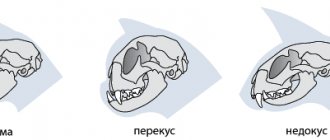Types of shelters
You can adopt a kitten from different shelters.
- Municipal shelter. These centers are run by municipalities and employ animal control staff to take in homeless and lost pets that are clearly in need of care. They have a relatively small fee, but such shelters do not provide veterinary services such as vaccinations, spaying or neutering.
- Local shelters. To ensure the well-being of future pets, most shelters keep cats either in separate enclosures or in fenced areas specially equipped for natural habitats. Some shelters even provide basic veterinary services, such as rabies vaccinations along with spaying and neutering. If the shelter does not provide neutering services, the staff can provide a list of local veterinarians who will help your pet for a nominal fee.
- Specialized shelters for cats. Specialized cat shelters can only accept adult animals, cats whose owners are no longer alive, or cats with special needs. Some shelters specialize in a specific breed.
Each shelter sets its own rules and fees, so check with your local shelter for details on how you can adopt and what your pet will need in a new home.
pros
- Vaccination . Volunteers are responsible for the health of the animals in the shelter. As a result, vaccination is given paramount importance here. The kitten receives timely vaccinations against panleukopenia, rhinotracheitis, feline chlamydia, calcivirosis and rabies. Along with vaccination, the cat must be examined for fleas and ticks. At the first signs of their presence, the animal is treated, and all data on its health status is entered into the veterinary passport.
- Sterilization . Every shelter tries to sterilize a cat after 5-6 months. This procedure is necessary both for the stable condition of the animal and to prevent its reproduction on the territory of the shelter. You can find out if the cat is sterilized from the curator.
- Education . Volunteers do everything to ensure that the animal gets accustomed to living at home, no matter how complex the cat’s character is or how long it has lived on the street. Here the kittens learn to lap up milk from a bowl, sharpen their claws in a specially designated place and, most importantly, become accustomed to the litter box.
- Opportunity to get acquainted with pets before visiting the shelter . Many shelters post basic information on their personal websites, including complete listings of their pets with brief descriptions. This approach is very convenient, because before going to the shelter, you can first familiarize yourself with all the animals kept there.
- Constant consultation with a curator . A curator is not only a person responsible for the health and quality of care of animals, but also your personal advisor. As breeders do, curators answer all your questions, provide you with a veterinary passport and talk about the character of the kitten you have chosen. If, after you have taken the animal home, you still have unresolved questions or new ones arise, you can always call the curator and get all the necessary recommendations.
And, perhaps, the most important thing. Shelters do not cultivate the breed of a cat or its pedigree, which, according to many sellers and breeders, is a key measure of the significance of an animal. Shelters place the pet in your care, rather than sell you a “live commodity.”
Can the shelter take in a problem animal?
Definitely not! Cats do not end up in a shelter of their own free will. The most common reason is previous owners. Perhaps they moved to a new home and didn't take the pet with them, or their lifestyle changed, such as having a child in the family, or a family member developing an allergy to cats. Illness or death of the owner is another misfortune that causes an animal to end up in a shelter.
In most cases this happens by accident. Regardless of the situation, most shelters will be happy to provide a reason why a particular cat ended up in the facility, and can also advise on how best to adapt the pet to a new home.
They refuse under the pretext of “tired”
Most animals come to the shelter from the street, but many are brought in by their own owners. The reasons for abandoning loved ones who suddenly turned out to be exes are very different and often simply absurd.
“Very often, unfortunately, domestic, purebred cats end up in the shelter,” Yanna complains. – People abandon their pets under the pretext of “tired”, “a child was born”, “the cat is old”. “Old” in the understanding of some owners is ten or even five years. Although these are completely young animals. With proper care, a cat can easily live 20-25 years.”
Most often, of course, people come to the shelter for kittens: everyone wants to have a affectionate, healthy pet that can be raised in their own way and that will please the owner for a long time. Nevertheless, visitors often take adult and even elderly cats with them, because during personal communication many of them open up, and the person immediately understands: this friend was waiting for me.
“Every purring baby deserves a happy future and a caring family. We recently had a 20-year-old cat at our shelter who went home. Over the weekend, a 15-year-old house cat also found a family,” Yanna shares with a smile as we walk around the enclosures. Fluffy, colorful and incessantly meowing inflorescence surrounds us from all sides, demanding attention. Many cats curiously pull their paws through the bars, try to touch the photographer’s camera, and some even pose for a photo. On each cage there is a sign indicating the cat's name, gender, age and advice on feeding and care. You will hardly find Barsiks and Mussies here: most of the local inhabitants have original and even exotic names - to match their disposition, coloring or other individual characteristics. The majestic Manefa, Safira, Woland and Luciano coexist with funny and cute nicknames: Zucchini, Kolobok, Umnyasha, Ogonechok, etc. Many of the names were invented by subscribers and viewers of Internet broadcasts that the shelter regularly conducts on social networks.
Why should you adopt an animal from a shelter?
A cat who needs a new home is always a great choice for those who have never owned a pet before. Most shelter cats have once had an owner, so the pet knows the rules of the house. The shelter provides a large selection of animals: short-haired, tabby, boys, girls - whatever your heart desires.
Most shelters record information about the temperament of cats and keep records of animals abandoned by their owners. You may find this information helpful as you search for your ideal pet. If you know what to expect or have any information about the animal's past life, you already have a big advantage in why you should adopt a cat from a shelter.
I'm going to the shelter to meet the animal. What awaits me and how should I behave?
“Choose an animal you like, and not just because you feel sorry for it or on the principle that it needs it more.” You also need to take into account your lifestyle and conditions,” advises Amal Baeva. — If you yourself lead an active lifestyle and love walks in the fresh air, then get an active, playful dog. If all this is not for you, then take a calm one. The same applies to cats. If you have children, then it is better to take a less characteristic animal; such a pet will not tolerate uninvited cuddling and will not play at the first invitation.
Please note that it is not possible to learn the character of an animal in one walk. New visitors are stressful for shelter animals, and even within a few encounters, your pet will behave differently than usual. Only at home, having already established contact and trust with the animal, can you establish a good relationship.”
Healthy but curious
When choosing the perfect pet from your local shelter, its health should always come first. Healthy cats have clear eyes and a clean nose; they should not sneeze or cough, especially with phlegm. The animal's coat should look well-groomed and smooth.
Try to discern an inquisitive character in such beauty! If your cat is awake during your visit, she should not be afraid to approach you and interact. A cat with a sense of adventure gets used to a new family more easily.
What psychological difficulties can I face with my pet?
Be patient. The animal may be scared of the new environment, because it doesn’t know you yet. You begin an adaptation period with him. It is necessary to build a trusting relationship: do not shout or scold the dog or cat, but you also do not need to spoil it right away.
Don't force affection. Let the animal get used to it, and gradually it will begin to come to you for communication.
During the first few days, your pet may refuse to eat. Don’t run after him with a bowl; let it stand in the kitchen, as it should be. The time will come, and the animal will eat (but if the animal does not eat for more than a day, looks weak and is hiding, take it to the veterinarian).
“We advise adopting an animal before the weekend in order to stay at home with the new pet and show him how to behave correctly,” recommends Galina Sitnikova, Matroskin shelter.
It is important to understand: animals, like humans, can exhibit psychological problems. The dog can constantly bark, pee, and chew everything. Cats tend to hide and hiss. Try to immediately start working on correcting these issues. Often shelters have their own dog handler: contact the animal’s curators for help.
Don't expect "gratitude" from the animal. Yes, you saved him from homelessness and gave him a home, but a dog or cat may not immediately “behave” in response to your care.
Especially in the first weeks, when the pet is stressed and is just getting acquainted with the new rules.
How to adopt a cat
Each shelter has its own procedure, so check the organization's website (or call the shelter) for details. The following actions are the most common among most shelters:
- Typically, private shelters require you to fill out a form with your veterinarian's name, phone number, and additional information. Contact your local veterinarian first for information and then contact the shelter.
- All information about animals ready to find a new family is published on the Internet or on the shelter’s website. If you like a particular cat, call ahead and find out if it is at the shelter.
- Make an appointment at the shelter to see your future pet.
- Don't forget to bring your driver's license or other identification document with you.
- Some shelters provide cardboard boxes for you to pick up the animal, but if you have a carrier, please bring it with you. The cat must be transported in a sturdy carrier to prevent injury and to prevent it from escaping.
- Some shelters give you a day to think it over, so you won't be able to adopt your pet right away. Keep in mind that this way you can calmly weigh your decision, and the shelter will have the opportunity to check your information and make sure that you are a caring and responsive owner.
- You may also be asked to fill out an agreement, which specifies all the conditions for keeping and caring for the animal. You may need to have your pet spayed or neutered and have up-to-date vaccinations. Or you will have to return the cat to the shelter for some reason in order to find her a new home.
- And finally, take your cat home as soon as possible. Buy a tray, food and bowls for eating and drinking, and place them in one room. This will help the cat stay in one room for the first one or two days until she gets used to the environment. Give her plenty of toys and a safe place, such as a cardboard box or soft house.
Nowadays, you can increasingly see people on the street walking not purebred dogs, but ordinary mongrels. Thanks to the activity of volunteers at animal shelters, mercy has become fashionable, and more and more abandoned dogs and cats are finding new owners.
But, succumbing to a noble impulse or simply pity, not all potential owners understand what they are getting into. After all, it’s one thing to take a puppy or kitten, and then “sculpt” it into what you want to get (but even with this, not everyone can cope without experience). And the situation is completely different if you take an adult animal, with an already formed character and habits.
Unfortunately, it also happens that, without calculating their strength, failed owners return animals back to the shelter. And it can be even worse - when dogs and cats are thrown out onto the street.
Owners of former shelter pets whose fate turned out to be happy share their experiences.
Alla Tsvetkova:
— We adopted Eva in January 2020, I constantly saw advertisements on the Internet, and I felt sorry for these dogs from the shelter. We arrived, Eva herself jumped over the fence and ran to my car, so we took her.
On the first day she ate and fell asleep happy. Everything was fine, we fattened her, sterilized her, and she became friends with the cat. But Eva was small (she was six months old) and began to misbehave at home, carrying everything she could take. Then she chewed on the furniture that we brought from Ikea - we were renovating the children's room.
And I thought that I couldn’t cope with her, that I had no experience with dogs, I didn’t know how to manage her. The husband insisted that there was no need to take the dog. And I wrote to curator Natalya, explained everything and asked if it was possible to return Eva. Natalya replied: of course, bring it. She lived with us for 2 months.
I took Eva to the shelter in tears. When they put her in the cage and she stood up on her hind legs and started barking loudly, I cried. In the evening I had to call an ambulance because I felt very bad. Then I watched Natalya publish a photo of Eva to find new owners, and I couldn’t calm down.
For three weeks without Eva, I cried every day, and I decided that it didn’t have to be this way. Since I can’t forget her, I need to fix everything. I realized that it was my mistake. I wrote to Natalya and asked to give us a second chance. And the next day she couldn’t wait for us to go get her. When my daughter and I arrived, Eva whined with joy at seeing us again. And I kept repeating: “Forgive us, Evushka.” And the second attempt began. We took training courses, learned how to raise a dog and understand it. Then Eva periodically continued to misbehave at home, but I had a different attitude towards this - I scolded her a little and she understood everything. Then it was all over. She matured and became my most devoted friend. As soon as I start to feel sad, she is already there - she looks into my eyes and gives me her paw.
By the way, when we were going to return Eva, my daughter Milena (she was 13 years old) wrote me a note saying that if we give Eva back, consider that our daughter was also given to the shelter. Then I took a small cat, also seeing an advertisement on social networks that the kitten was taken out of a car at a car service center. She quickly became friends with Eva. When the cat was sterilized, Eva lay next to her while she slept under anesthesia - she watched and, probably, felt everything.
Eva has been with us for 5 years and 11 months. Natalya Fomina:
— Marta was taken from foster care in the summer of 2020. I couldn’t live in the house, but I feel great outside. Maintains order in the yard and surrounding area. He loves to swim in the river (fortunately, the river is two steps from the house). Very cheerful dog, loves to cuddle. We also call her Little Bear, since Martuska grew herself a gorgeous fur coat.
When Tyapa, who lived at home, died (we also have a dog, Nora, outside in an enclosure), it felt a little empty. There was a lack of someone to move under our feet. We decided not to take a puppy, but to take a grown-up or adult dog. We started looking around in VKontakte groups and saw Marta. She was somewhat similar to our Tyapa.
We contacted the curator and went to the foster care facility to take a look. True, she turned out to be larger than we expected, but we decided to take her for a trial period. There were no special problems with adaptation, except for one thing: she could make a puddle a couple of times a day, despite the fact that she was walked three or four times. Apparently, it was due to the fact that she had previously lived in a booth at a construction site, where she was abandoned.
They decided to place her on the street. First, the booth was placed near the house, and then moved to the enclosure. Martha and Nora became friends. Now you have to take them out for walks together, because if you take one, the other will be offended.
Varvara Merkuryeva:
“It’s been exactly a year since our dog Caesar left the doors of the shelter and went to the city of Kem, to my parents. Feels good, cheerful and cheerful.
Caesar has a best friend, a playmate, a sausage-thrower and a faithful playmate - the cat Ryzhik. And we were worried about how they would get along - there was no practice. And there was no need to worry. This is real love.
The whole district knows Caesar! The dog is very kind and loving. She loves walks in the park, where you can always meet your friends and have fun. Caesar recently became friends with a muskrat from the pond! The little muskrat came out every day at the appointed time, they played on the shore, or she tried to lure Caesar into the pond. Just imagine, a dog playing with a muskrat! This, perhaps, could only happen to Caesar.
Olga Merkuryeva:
“In our family, everyone’s beloved dog Vinnie tragically died, we were very sad and blamed ourselves for what happened. And my daughter Varya suggested that we adopt a dog from a shelter.
We arrived in Petrozavodsk, and my daughter persuaded me to meet the dog. When we saw Caesar, we were confused. The dog is very beautiful, but compared to the one we had, it seemed too big.
The shelter workers said that a dog handler worked with Caesar, that he is the kindest dog, loves children very much, and that he is everyone’s favorite here. And when I looked into Caesar’s sad eyes, I thought that at least this dog will be lucky in life.
We brought him home to Kem, where he became friends with the cat Ryzhik. Caesar got used to us right away. Indeed, he is the smartest and kindest dog, he listens to his owners, doesn’t run away, is always there for a walk, all the local dogs adore him, he is friends with everyone, and children, seeing him on the street from afar, call him and pet him! And out of his canine joy he is ready to lick everyone. Only he doesn’t like drunken men in workmen’s and fisherman’s clothes—he grumbles muffledly and tries to avoid them. And for some reason, women who walk with heavy bags. Some of my own fears.
Caesar is a wonderful dog, and two-year-old Ryzhik is a great dog. They rush after each other - good, we have three rooms! And if they play enough, they can lie down next to each other to sleep on the master’s bed when we are not at home. When the little grandchildren arrive, Caesar follows on their heels - guarding them so that no one will offend.
We take morning and evening walks together, in any weather, and this makes both me and him feel good. We did not regret that we had acquired such a faithful friend.
Olga Kirillova:
— When we decided to get a dog, we immediately decided that we would get it from a shelter. We wanted to adopt an adult animal and at the same time help the shelter a little. The dog has been living for 3 years, adopted at the age of 4-5 years in 2016.
Alma took about a month to get used to it; we visited her at the shelter and took her on weekends. She is distrustful by nature, was attached to one of the workers and resisted when we took her for a walk. When she finally got used to us, she began to react very painfully when she was left alone. We struggled with this problem for a long time, it howled and spoiled things - I was afraid that they would abandon me. I had to come back and scold. It seems to me that she did this to attract attention, that is, even if they scold her, the owners will return.
Later we managed to achieve a calm reaction - she got used to the fact that sooner or later they return to her, and she is always very happy. Recognizes the owners by their silhouette, voice, and the sound of the car and begins to “wail” loudly. Now he behaves well at home, but if we leave him in a hotel, he can become mischievous. We don't know her history before the shelter, perhaps there was some kind of trauma, so she avoids strangers and always wants to be close to her owners.
The kitten was adopted this year, six months after the death of the elderly cat; Matilda is now six months old. When they came to pick them up, it turned out that some of the animals had caught a cold, and Motya was no exception. We went to the vet that same day and were prescribed treatment for conjunctivitis, otodectosis and runny nose.
The cat is very curious, sociable, affectionate, follows around everywhere, looks into the eyes so thoughtfully. At first we were very worried about how they would get along with the dog - Alma does not offend cats, but she is not indifferent to them and wants to communicate. Now they are friends - they sleep together, play.
Expert commentary
Animal psychologist and dog handler Snezhana Yakushkova is involved in the selection and preparation of dogs for canistherapy, and also raises a dog adopted from a shelter herself. We asked her to give some advice to potential owners of such animals.
— What should people who decide to adopt an animal from a shelter prepare for? What problems might arise?
— First of all, you need to pay attention to your pet’s health, have your pet examined by a veterinarian, and give him an anthelmintic. Shelter dogs often have diseases of the gastrointestinal tract and liver, since their diet is usually unbalanced.
It may be difficult to toilet train outside if the dog has lived in a shelter for a long time. Another common problem is intolerance to loneliness. When a dog left alone at home begins to make noise - howl, bark.
Many shelter dogs steal from the table and pick up anything on the street that seems edible to them. You can’t blame them for this; it’s built into them as a way of survival. When volunteers come to the shelter, they often throw treats they brought with them into the dogs’ enclosures. They go to those who managed to catch them on the fly or grab them on the ground.
My dog, adopted from a shelter, picked up everything on the street, stole food from the table and from the cat. The problem was solved with the help of good quality food. Her body was filled with everything it needed, and everything returned to normal.
— How not to make a mistake when choosing a pet, what should you pay attention to?
— You need to choose with a cold mind, and not with your heart (“oh, what ears” or “I feel sorry for this dog”). Treat choosing a pet like buying a car or an apartment. Remember that you will spend 10-12 years with your four-legged friend. The dog's temperament should match yours, or be calmer. A non-athletic person should not adopt an energetic dog.
Remember that you will have to walk your dog for at least one and a half hours a day. Be patient during the animal's adaptation period; on average, it takes three to six months.
If you are choosing a pet for your family, you should not take unsocialized dogs - cowardly or aggressive ones. See how friendly and controllable the dog is, how it reacts to you, whether it looks into your eyes.
You can't choose a pet based on a photo alone. Anything can be hidden behind a pretty appearance - unmotivated aggression, uncontrollable temperament.
— How to speed up and facilitate an animal’s adaptation to a new place?
— When you adopt a dog from a shelter, you must immediately teach it to behave correctly. If she wants to jump into the car, pull her back, make eye contact, and only then make an inviting gesture.
We arrived home - the same thing. So that the dog does not “drag” you into the entrance and into the apartment, and then runs through the rooms to examine everything, and you lead it. When the door is opened, sit the dog down first and enter first. Then wind her up and unfasten the leash. Only then can you allow your pet to walk through the rooms and sniff everything.
Show the dog its place - it will understand that it is prepared for it. Under no circumstances should you be allowed to jump on the sofa right away. Remember that you brought the dog into your territory, and it will live by your rules. This will help avoid many problems later.
If the dog is afraid to be left alone and makes noise when the owners leave, you need to ignore it 15-20 minutes before leaving the house, do not pet it, do not talk. Ideally, when you are about to go out, the dog should lie in its place and doze peacefully, that is, be absolutely calm. There is no need to feel sorry for her and persuade her - this will have an exciting effect on her psyche. If your dog is noticeably nervous, try to wait until he calms down.
When you come home, also behave calmly and do not show emotions. This will help the dog get used to the fact that you periodically leave and then come back.
If a pet chews things, this is most often the result of small loads. This means you need to increase the duration of your walks. For overly temperamental dogs, exercise on a treadmill is recommended. In any case, you need to understand that if you take a living creature, you have serious work ahead of you.
— If there are already pets in the house, how can you help them make friends with a new “family member”?
“It’s better to introduce them on neutral territory.” Nothing brings dogs together like going for a walk together. Of course, it’s not worth pitting pets against each other by unexpectedly bringing an unfamiliar animal into the house. Even the most peaceful dog or cat will defend its territory. In order for a dog adopted from a shelter to behave calmly in your home, you need to give it a good walk and let it use up excess energy.
Calculate expenses in advance
A cat is a lifelong commitment. As her owner and protector, you are responsible for her well-being and well-being for the rest of her life. It is very important to calculate the expenses and time you devote to your cat.
Cats groom their own fur, but you need to trim its nails regularly to prevent it from scratching you or the furniture (and you know how cats love to sharpen their claws on the carpet). If you plan to trim your cat's nails at home, you will need help holding your cat. If you have a long-haired cat, you may need to take her to a professional groomer regularly to keep her coat soft and tangles removed.
I'm taking my pet home. Do we continue to communicate with the shelter?
Most often, the animal is brought to its new home by curators - people whom the dog or cat already knows well, and the pet is not so scared. Yes, yes, animals worry too!
The shelter or foundation does not abandon its charges. Volunteers may occasionally visit you or ask for photographs of your four-legged friend to see what the animal is like in new conditions and how it is treated. And of course, to provide you with help and support.
Typically, the shelter enters into an agreement with the owner of the animal for the responsible care of the animal, which will spell out all the conditions and rights and obligations of the parties.
There is a certain “probationary period”. The possibility of returning the animal has been agreed upon. There are cases when shelter volunteers decide to terminate the contract and take the animal back: this happens if the owner cannot cope with the difficulties that have arisen, raising the animal, or, for example, loses it on the street (the shelter usually immediately joins the search and most often finds the escaped lost one).
Daily routine
Don't forget to buy a tray, bowls and toys. You also need to buy a brush to comb animal hair, clay or granular litter for the toilet.
High quality pet food is rich in nutrients and contains no additives. Cat food, such as Science Plan, can be purchased at your veterinarian's office or pet store.
But what about the time costs? You don't need to walk your cat, but you do need to spend quality time with your furry friend every day. Grooming, brushing, feeding and simply spending time together is essential to establishing a special bond between you and your new pet.
Cats are so social, loving and affectionate - and ask so little in return. So don't hesitate and get a cat. As they say, let this be the beginning of a strong friendship.











